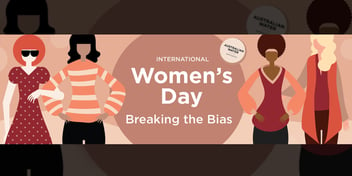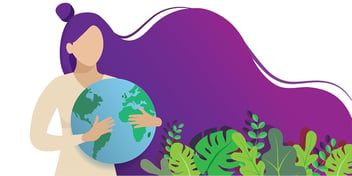Why the water industry needs women of colour
Engineer Priyani Madan wants the water industry to embrace a future that draws on and learns from the talents of people from a diverse variety of backgrounds.
Priyani Madan was born in Australia of Indian heritage and went to a school where there weren’t many people from different backgrounds.
“Throughout school and after school I was bullied and othered.
“Many people of colour in Australia face indirect racism on a daily basis and that's definitely been a big part of my growing up and has shaped who I am, what I care about and what I'm passionate about.”
Volunteering with Engineers Without Borders deepened her enthusiasm for engineering when she realised it was a profession that would enable her “to make a difference”.
“I have always been passionate about creating change and doing something good with my life," she said.
"I am attracted to the water industry because it’s so essential to life and there’s so much opportunity to make a difference to the lives of others.”
Madan says her interest in the water industry is shared by many women, but speaking with women of colour in the industry, she found they often feel excluded and isolated and lack role models, mentoring and support.
She started a forum for Black and Indigenous women of colour called BIWOC in STEM Support Collective to ensure women have access to the mentoring she has benefited from. She initially trialled it informally with colleagues and has since expanded it to the broader STEM industry.
“The aim is to provide a safe space for us to feel we're not alone, which often we do, especially when you're in rooms every single day with mainly men and no one else that's a person of colour," she said.
"It’s just really encouraging peer to peer support, mentoring and kindness to foster more connection within the industry.”
By mentoring and supporting as many women of colour as she can, Madan hopes they will go into leadership roles and create the role models the current generation don’t have.
But she believes it will take more than supporting and empowering women to bring about real change.
“I think that diversity and inclusion efforts in water and engineering that have often focused on women are not intersectional and exclude not only women of colour, but women with different abilities or different socioeconomic backgrounds and people from the LGBTIQ+ community,” Madan said.
“There’s this falsehood there are not enough women, but it's more about creating the structures so that once women are there, they are supported, given opportunities, recognised for their hard work and don’t burn out and leave.”
Her vision for the future for the water industry is one where leaders and managers mentor women and “constantly put them forward”, and explicitly listen to people from diverse backgrounds, particularly Traditional Owners, to address challenges in a more holistic way. It is also one where all are aware of their own privilege and the shadows they are casting and challenge their biases.
“In Australia, we are facing drought, climate change and emerging contaminants. We need to work more closely with people from diverse backgrounds, but especially Traditional Owners, because they’ve got land and water management practices that date back over 60,000 years," she said.
"By having more Aboriginal and Torres Strait Islander engineers and professionals within the industry, that will help us address these challenges properly.”
Priyani Madan will speak at the Australian Water Association VIC Branch's International Women's Day event on Tuesday 9 March 2021. Visit this page for more information and to confirm your registration.



